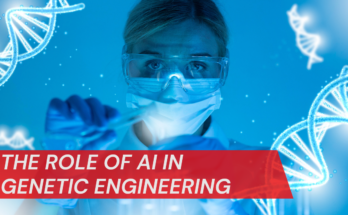Artificial Intelligence Business Ideas:
In the dynamic landscape of our evolving world, Artificial Intelligence (AI) stands as a transformative force, reshaping industries and presenting unprecedented opportunities for business growth. With its capacity to learn, adapt, and automate, AI transcends being just a technology; it stands as a catalyst ready to disrupt conventional markets and pave the way for entirely new ones. Entrepreneurs who are eager to capitalize on this game-changing technology should examine a comprehensive reference to the world of AI business concepts. This in-depth investigation spans several industries and identifies prospective businesses that can take use of AI’s ability to prosper as well as make large profits.
Empowering Small Businesses with AI:
Small firms, which frequently have more limited resources, can use AI to improve productivity, optimize workflows, and gain a competitive advantage in the marketplace. Artificial intelligence applications can be tailored to smaller businesses’ specific requirements, whether they are for improving inventory management or customer relationship management. This allows them to attain operational excellence without the financial burden that comes with large-scale implementations.
A deliberate strategy is necessary when implementing artificial intelligence in small businesses. It is essential to comprehend the unique needs and constraints of the company. factors include staff training, the scope of the deployment, and compatibility with current systems are essential to achieving a smooth integration and optimizing the advantages of AI technology.
The Evolution of AI in Business
The idea that machines could make intelligent decisions was confined to science fiction until recently. However, due to AI’s quick development, it is now a crucial component of many commercial processes. The progression from basic rule-based systems to intricate machine learning algorithms has been characterized by noteworthy discoveries and ongoing innovation.
Artificial Intelligence in Healthcare:
Improving the diagnosis and treatment of medicine. Artificial intelligence (AI) has the potential to revolutionize the healthcare sector by enhancing patient care, streamlining processes, and cutting costs. Here are a few intriguing AI-related healthcare business ideas:
- AI-Enhanced Diagnostics and Risk Detection: Create cutting-edge AI algorithms that can evaluate several types of medical pictures, such as MRIs, CT scans, and X-rays. With the use of this technology, suspected illnesses or anomalies should be detected earlier and with more accuracy, opening the door to more accurate and prompt medical interventions.
- Healthcare education For professionals to fully utilize the potential of artificial intelligence in enhancing patient care, streamlining procedures, and propelling medical research, a solid foundation in data analysis is essential. Through healthcare education programs, professionals can gain the skills and information necessary to fully utilize AI in data analysis, which will ultimately enhance patient outcomes and healthcare delivery. Research Mentorship Program in Computer Science
- AI-Driven Drug Discovery and Development: Use AI to your advantage to speed up the drug-finding process. Artificial intelligence (AI) can find possible medication candidates, forecast their efficacy, and evaluate safety criteria by utilizing sophisticated algorithms. As a result, medication development is accelerated and patients can receive novel therapies more quickly.
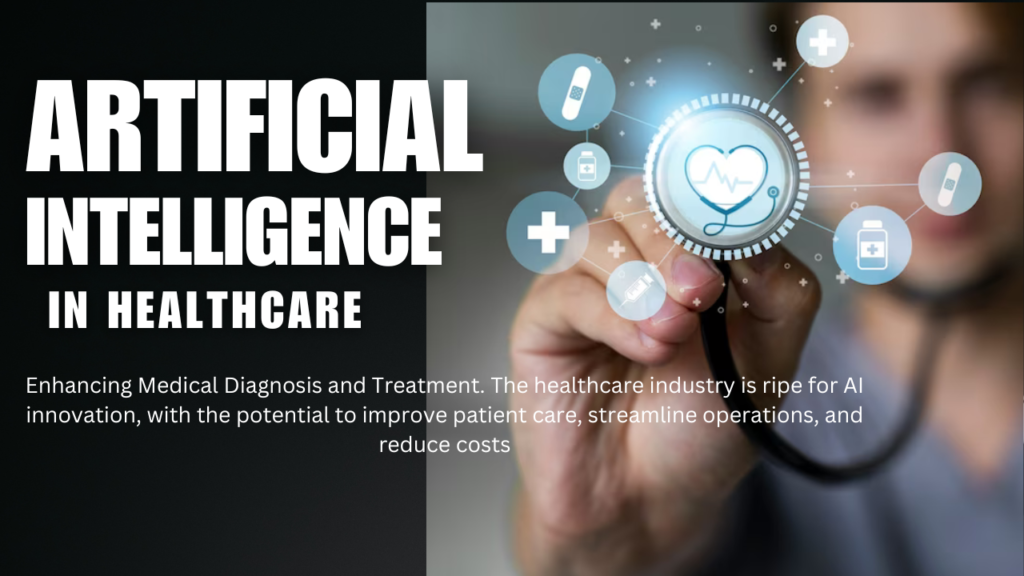
- AI-Assisted Personalized Treatment Plans: Introduce AI-driven tools that can customize treatment strategies by analyzing large amounts of patient data. This tailored strategy matches medical interventions to the distinct qualities and requirements of each patient, resulting in optimal results and fewer adverse effects.
- AI-powered virtual assistants for healthcare: Create AI-driven virtual assistants that can book appointments, respond to inquiries, and give patients individualized health information.
AI Revolutionizing Finance:
The financial sector is going through a radical change as it uses artificial intelligence (AI) to improve risk management, automate processes, and provide individualized financial services. Examine cutting-edge AI business ideas designed specifically for the finance industry:
- AI-Powered Robo-Advisors: Present robo-advisors with AI capabilities that provide individualized investing guidance, portfolio management, and financial planning services. These smart algorithms optimize investment methods based on the unique tastes of each user.
- AI-Driven Fraud Detection and Prevention: Innovative artificial intelligence algorithms devoted to detecting and stopping fraud, such as insurance and credit card fraud. These algorithms improve security protocols by utilizing sophisticated data analytics, protecting assets and financial transactions.
- AI-Powered Chatbots for Financial Services: Use AI-powered chatbots that are trained to handle financial inquiries, facilitate transactions, and offer seamless customer service. By providing prompt and accurate support in real-time, these virtual assistants improve user experience.
- AI-Driven Risk Assessment and Credit Scoring: Create state-of-the-art AI models for thorough credit scoring and risk assessment. By analyzing complex data sets, these models assess risk profiles and creditworthiness, enabling financial institutions to make well-informed loan decisions.
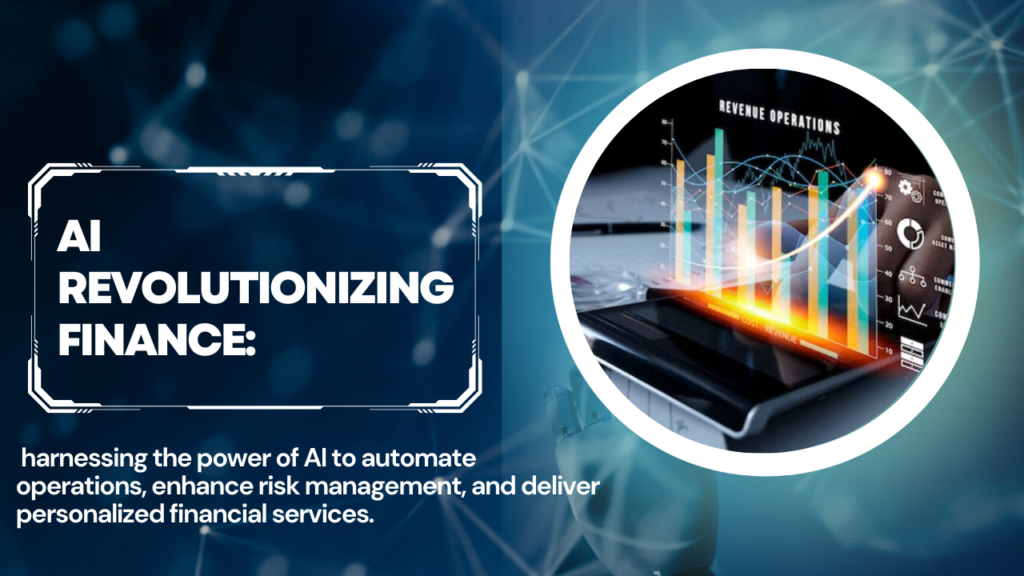
AI in Manufacturing:
AI may also improve supply chain management, streamline operations, and optimize production processes in the manufacturing sector. Here are a few manufacturing-related AI business ideas:
- AI-powered predictive maintenance: Create AI algorithms that anticipate equipment failures so that preventive maintenance can be performed and downtime can be minimized.
- AI-driven demand forecasting and inventory optimization: In order to cut expenses and boost supply chain effectiveness, implement AI systems that estimate demand and optimize inventory levels.
- AI-powered quality control and defect detection: Create AI algorithms that examine pictures and product data to find flaws and guarantee product quality.
- AI-driven robotic process automation (RPA): Use AI-powered RPA technologies to automate repetitive processes like order processing, data entry, and customer support.
AI for Agricultural Advancements:
Artificial Intelligence (AI) is becoming more and more important in transforming all facets of agriculture by providing creative solutions to problems and raising productivity. Examine the various ways that AI is being used in the agriculture industry:
- Precision Farming with AI: Incorporate AI technologies to make precision farming methods possible. Drones and sensors powered by AI are analyzing weather patterns, agricultural conditions, and soil health data. By optimizing resource consumption, this data-driven strategy promotes sustainable farming practices and higher crop yields.
- Crop Monitoring and Disease Detection: Use AI-driven image and recognition algorithms to track crops in real time. These systems identify early indicators of insect infestations, nutritional deficits, and illnesses. Farmers can protect their crops by being proactive and receiving timely insights.
- Automated Harvesting with Robotics: Utilize robotics powered by AI to automate harvesting procedures. Machines can now recognize ripe crops thanks to AI algorithms, assuring timely and effective harvests. By using accurate harvesting techniques, this decreases crop losses while also cutting labor expenditures.
- AI-Enhanced Climate Prediction: Utilize AI to analyze historical weather data and develop predictive models for climate patterns. This assists farmers in making informed decisions related to planting schedules, irrigation, and crop selection, mitigating the impact of climate variability on agricultural outcomes.
- Smart Irrigation Systems: Incorporate AI into irrigation systems to manage water more intelligently. To optimize irrigation schedules, AI algorithms examine crop water requirements, soil moisture levels, and weather forecasts. As a result, crops are healthier and less water is used.
- Supply Chain Optimization: Utilize AI to streamline the supply chain for agriculture. Artificial intelligence systems examine market patterns, demand projections, and logistics of transportation, enabling the effective distribution of agricultural goods. This reduces waste and boosts profitability by guaranteeing that goods reaches consumers on schedule.
- Livestock Monitoring and Management: Use AI-powered surveillance systems to oversee and maintain the health of your animals. Artificial intelligence (AI) sensors monitor key indicators, spot irregularities, and give early alerts for possible health problems. The general welfare and production of animals are enhanced by this proactive approach.
- Automated Weed Control: Automated weed control methods should incorporate AI. Robotic systems can target and eradicate weeds exactly because AI algorithms can discriminate between crops and weeds. As a result, less pesticides are used, encouraging ecologically friendly and sustainable farming methods.
Artificial intelligence has the power to completely transform the agriculture sector, advance sustainability, and ensure the world’s food security. AI has the potential to significantly influence how agriculture develops in the future by improving productivity, adaptability, and responsiveness to the changing demands of the world’s growing population. This is due to the continuous developments in technology.
AI in E-commerce:
Another sector where AI may improve customer experience, personalization, and product recommendations is e-commerce. Here are a few AI-related e-commerce company ideas:
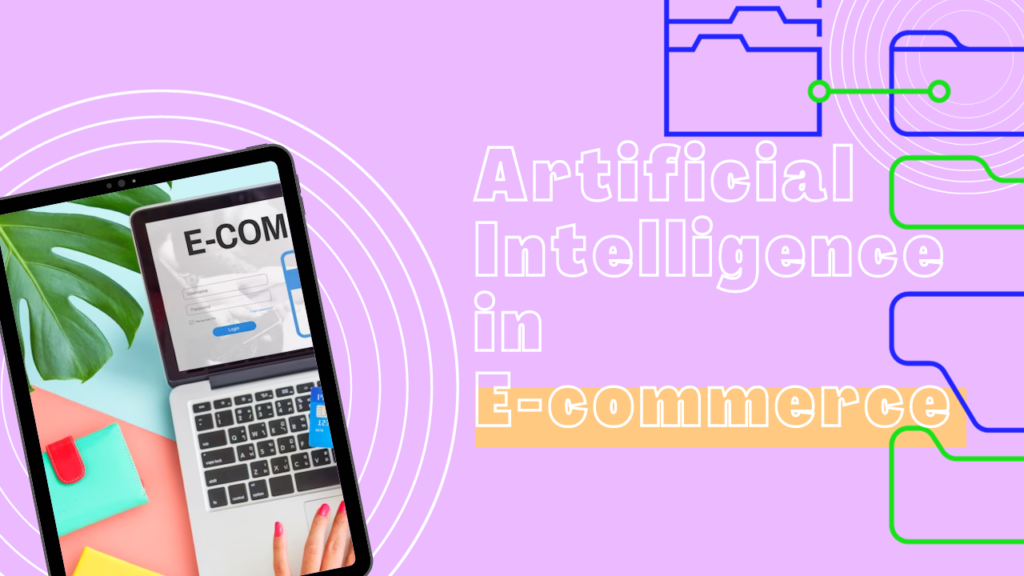
- AI-powered chatbots for customer support: Implement AI chatbots that provide 24/7 customer support, answering questions, resolving issues, and handling returns.
- AI-driven product recommendations: Create AI systems that evaluate consumer behavior and past purchases to make personalized product recommendations.
- AI-powered personalized pricing: Put in place AI systems that dynamically modify product prices in response to changes in consumer demand, market conditions, and rivals’ prices.
- AI-driven fraud detection: Create AI systems to identify fraudulent transactions and shield online retailers from monetary damages.
AI in Marketing and Advertising:
Artificial Intelligence is revolutionizing marketing and advertising by facilitating customized campaigns, focused advertising, and improved client interaction. Here are a few AI-related marketing and advertising company ideas:
- AI-powered marketing automation platforms: Create marketing automation solutions driven by AI that can analyze campaign effectiveness, personalize customer interactions, and automate marketing processes.
- AI-driven audience segmentation and targeting: Segment consumer data using AI algorithms to determine who is most relevant for marketing initiatives.
- AI-powered dynamic creative optimization: Create AI algorithms that maximize reaction rates and engagement by optimizing ad creatives in real-time.
- AI-driven sentiment analysis and social media monitoring: Use artificial intelligence (AI) techniques to track brand perception and uncover consumer insights by analyzing sentiment and social media interactions.
Best Practices for Implementing AI and Benefits:-
-
Collaboration Between IT and Business Teams:
Successful AI integration requires close collaboration between IT and business teams, aligning technological advancements with strategic goals for seamless implementation.
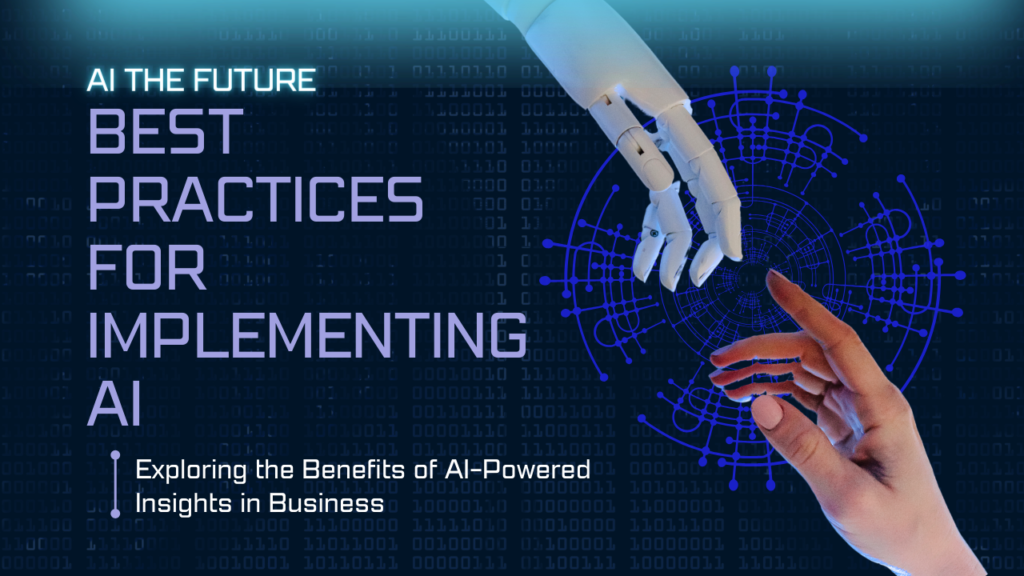
-
Continuous Learning and Adaptation
Given the rapid pace of AI advancements, businesses must foster a culture of continuous learning through regular training programs and staying updated on industry trends.
-
Overcoming Resistance to AI Adoption:
Addressing employee concerns through clear communication about the benefits of AI and mitigating fears of job displacement are crucial in overcoming resistance.
-
Government Regulations and AI
Navigating the complex landscape of AI regulations is vital for businesses. Staying compliant with current regulations and anticipating future changes is essential.
|
Challenges in Implementing AI |
Benefits of Artificial Intelligence |
|
|
|
|
|
|
Navigating the Ethical Landscape of AI :
As companies of all sizes adopt AI technologies, the ethical implications of AI become increasingly prominent. Maintaining ethical norms while promoting innovation is a delicate balance that must be struck for responsible AI use. Key foundations that guarantee the ethical deployment of AI systems are accountability and transparency. Encouraging algorithmic comprehension and interpretation is a key component of transparency in artificial intelligence. This ensures that AI systems function in accordance with ethical standards and fosters confidence among stakeholders by permitting inspection and assessment.
Since companies are accountable for the results of their AI applications, accountability and transparency go hand in hand. Algorithm biases must be addressed, data privacy must be maintained, and any possible harm to society must be actively mitigated.
Conclusion:-
It is impossible to exaggerate how revolutionary artificial intelligence could be for the commercial world. AI is opening up new opportunities and changing how businesses run, from enhanced efficiency to customized client experiences. Tomorrow’s enterprises will surely be transformed by wisely and creatively integrating AI as we traverse this ever-changing terrain.

